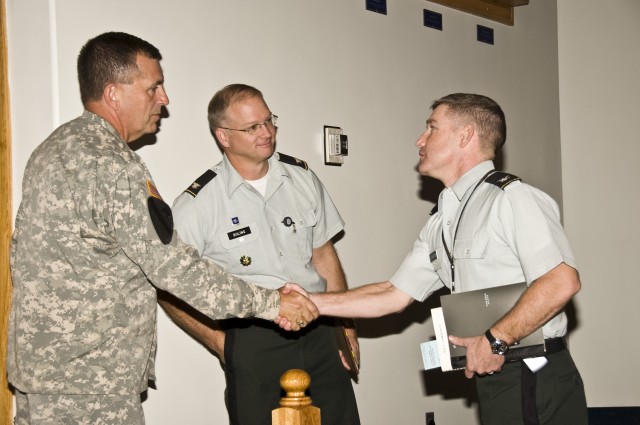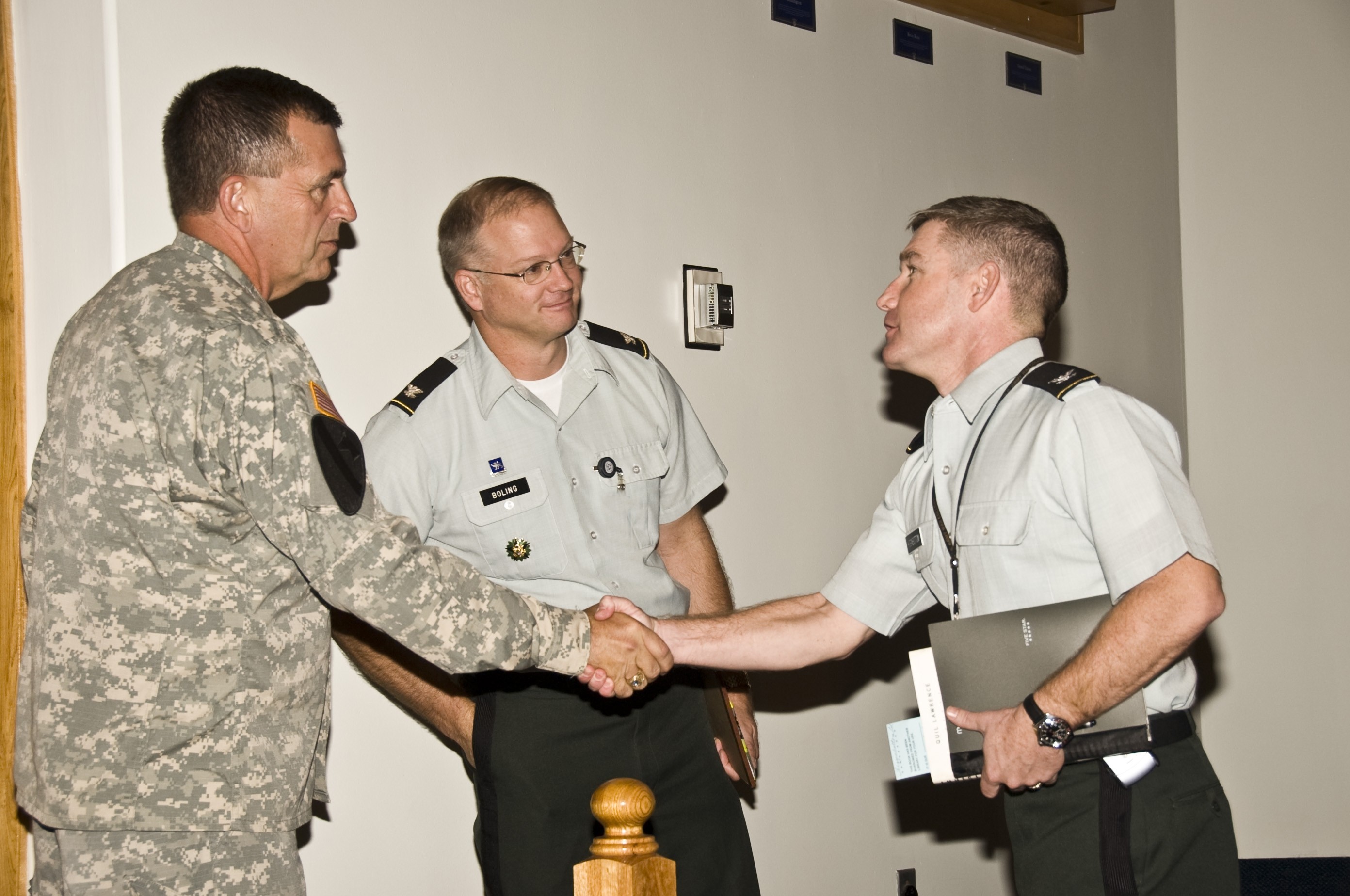
Oct. 16, 2008 -- Two themes emerged when the Army staff spent a day in conversation with students and faculty of the Army War College: the challenge of adapting to persistent military engagement, and the commitment to Soldiers and their families.
"With our Army engaged in two conflicts, it's imperative that we have the right personnel, equipment and strategies, but we also have a responsibility to our men and women serving. We have to balance our needs operationally with that of our families," said Gen. Peter Chiarelli, Vice Chief of Staff of the Army.
"Here you get an opportunity to learn more about strategy and re-connect with your family. You need to find a balance in your life and this is a great place to do so," he said to students Aca,!" most of whom served recently in Iraq or Afghanistan. "We will need you once you graduate."
Chiarelli addressed the class as part of the annual Anton Myrer Army Leader Day, the capstone event for the college's Strategic Leader course. He described the strategic environment - growing population, extremism and information technology implications Aca,!" to outline the challenges of adapting culture, policies and people for persistent engagement.
The all-volunteer force has been incredibly resilient, he noted, as we ask extraordinary things of our Soldiers and their families.
"With all of the world-wide changes going on, we are going to be placing more Soldiers and families in places that weren't originally designed for that influx," he said about BRAC-driven unit movements. "We have to make sure that we take care of our families.
"We have gone ahead and moved forward plans to build new child care centers at installations all over the country," he said. "We realized that these new centers were crucial and pulled them forward so construction would begin sooner."
Another priority for Chiarelli was the care and support for wounded warriors.
"It is our duty to take care of our wounded warriors and make sure they receive all of the care they need," he said. "I think we have done a good job but there is always more we can do and we respond to the needs of Soldier care." Chiarelli pointed out that the Warrior Transition Units have helped return about 40 percent of wounded Soldiers to service.
Chiarelli led the "all-star" Army staff, following the formal address, in a series of seminar discussions about the lessons of leadership.
"What have you done for our Soldiers today'" challenged retired Col. Geoffrey Prosch, Principal Deputy Assistant Secretary, Installations and Environment, to the "next generation" of Army leadership at the War College. In wide-ranging discussions across the 20 student seminars, each one led by a member of the Army staff, a clear theme emerged about the Army's commitment to the quality of life for Soldiers and their families.
In a seminar discussion with Prosch, students discussed the Army's dual commitment to reduce encroachment and protect the environment even as commanders ensure that Soldiers get realistic training before deploying to theater.
With the deputy chief of staff, G-3/5/6, Lt. Gen. J. D. Thurman, the seminar discussed a future marked by ongoing problems of global instability, extremism, nuclear weapon proliferation, humanitarian aid, energy and economic crisis. Global responsibilities beyond Iraq and Afghanistan underscore the conclusions that pressure on U.S. military forces will remain high as the Army will continue to be involved throughout the world.
In each seminar, students probed for insights from the seasoned strategic leaders. Thurman shared the lessons he learned since he graduated in 1995 Aca,!" use your instincts; watch for flawed assumptions; look at the 2nd, 3rd and 4th-order effects of every decision; and make time to read, especially about the culture you will enter upon deployment.
Lt. Gen. David Huntoon, Director of the Army Staff, leader urged students to manage stress and balance career and home life.
"Stress doesn't decrease as you advance in your career," he noted, and the ability to manage it will help extend not only your career, but your life.
The Army Physical Fitness Research Institute is a critical Army program to help leaders through education about health and fitness, he noted.

Social Sharing